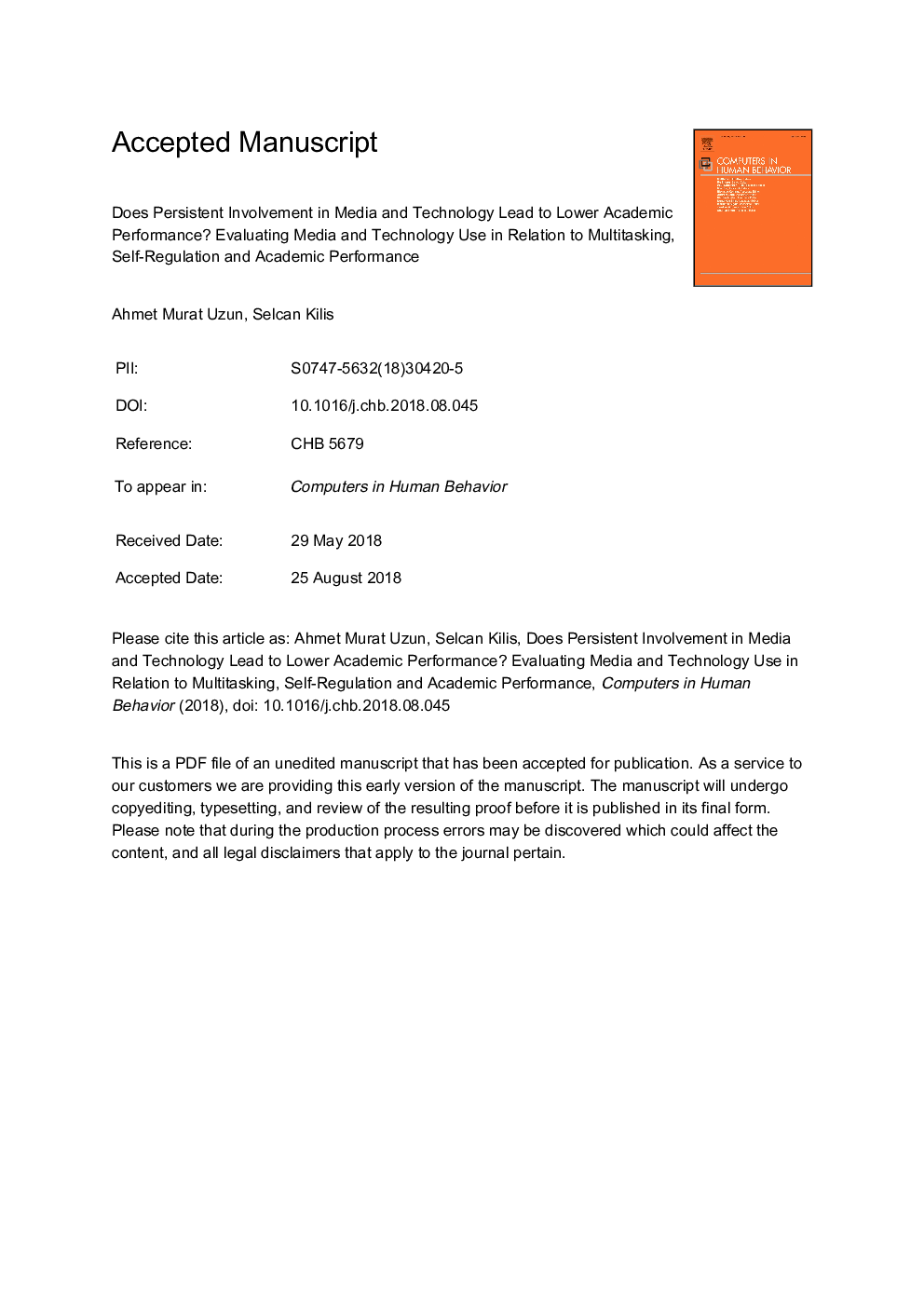| Article ID | Journal | Published Year | Pages | File Type |
|---|---|---|---|---|
| 10132565 | Computers in Human Behavior | 2019 | 34 Pages |
Abstract
Intensive use of media and technology has explicitly affected and changed our study habits. This cross-sectional survey study aimed to discover what kind of relationship exists between media and technology use and academic performance. The study also explored how multitasking and self-regulation influence this effect after controlling for their gender, age, and year of study. With this aim, data were collected from 631 university students on a voluntary basis and analyzed through both descriptive and inferential statistics. Findings of Pearson correlation indicated that students' academic performances has a weak significant negative association both with multitasking preferences and media and technology usage, but not with control of self-regulation. Hierarchical multiple linear regression analyses revealed that demographic variables including gender, age, and year of study were significant predictors of students' academic performances. Additionally, after controlling these particular demographics, only media and technology usage significantly and negatively contributed to the prediction of students' academic performance, whereas multitasking and control of self-regulation did not. Implications were discussed based on the results.
Related Topics
Physical Sciences and Engineering
Computer Science
Computer Science Applications
Authors
Ahmet Murat Uzun, Selcan Kilis,
